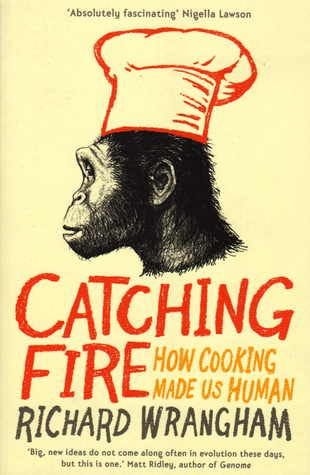First Principles: Wrangham Style
Did cooking make us human? If so, what now?
Shane Parrish describes the usefulness of reasoning from first principles like this:
“…the idea is to break down complicated problems into basic elements and then reassemble them from the ground up. It’s one of the best ways to learn to think for yourself, unlock your creative potential, and move from linear to non-linear results…Reasoning by first principles is useful when you are (1) doing something for the first time, (2) dealing with complexity, and (3) trying to understand a situation that you’re having problems with. In all of these areas, your thinking gets better when you stop making assumptions and you stop letting others frame the problem for you…”
I want to think for myself, unlock creative potential and get non-linear results. I, and anyone running a restaurant, is, in a way, doing something for the first time. Never before have restaurants so dominated the retail landscape, had to negotiate a sea of technological intermediaries and interlopers, and navigate the relentless pressure on profitability and survival.
So yeah, first principles thinking feels right!
If we’re going to break down the complicated problem of restaurants into the basic elements and start from the ground up, I think we should start with Richard Wrangham. Wrangham is a Harvard Primatologist and author of the book “Catching Fire: How Cooking Made Us Human”. In the book, he argues that it was cooking that led to bigger brains and the evolution from Homo Habilis to Homo Erectus and eventually Homo Sapiens. The argument is compelling and pretty simple.
Cooking food made it easier to digest, releasing more calories and nutrients that would otherwise be unavailable from raw foods.
This increased energy availability allowed for the evolution of larger brains, which require substantial energy to develop and maintain.
The practice of cooking led to a division of labor, social cooperation, and other behaviors that shaped human social structures.
The anatomical changes in humans, such as smaller teeth, jaws, and digestive tracts compared to other primates, were adaptations that followed the adoption of cooking.
He likened cooking to a form of external digestion that allowed for consuming more calories with less energy. The new found surplus of calories went to brain development, a pre-frontal cortex, empathy and, fast forward a couple million years, cronuts and Netflix.
Wrangham’s cooking hypothesis has it’s detractors - ‘where’s the proof of cooking at scale’, ‘stick to your chimps’ . Whether cooking was the ultimate unlock for humanity or not, it’s seems inarguable that it was a game-changer. If cooking and consuming cooked food was, ahem, elemental to evolution, what does that say about the modern role of restaurants?
Assess the Current reality 2. Identify the First Principles 3. Shape a New Reality





